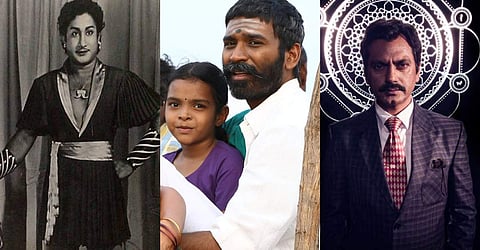

Researching for a panel discussion on the topic ‘Book to film/OTT’, I was struck by the list of adaptations—the sheer number of films across languages, adapted from books, made me wonder why we even struggle to pen our own stories for cinema when books across a plethora of genres are readily available. Take, for example, the 1958 Sivaji Ganesan classic, Uthama Puthiran, based on the French novel by Alexander Dumas, The Man in the Iron Mask, or how about the longstanding James Bond and Harry Potter films, shining examples of how a successful book can be made into a successful film franchise? Most international film awards have a category for Best Adapted Screenplay. Recently, Netflix’s French show, Lupin, modernised a legendary comic series into an updated tale set in picturesque Paris. Indian cinema too is replete with examples of book adaptations. In Tamil, writers like Jayakanthan, Sujatha and T Janakiraman and the eternal Kalki have left us with stories suitable for the silver screen. Yet, there is a gap in recent years which looms large, like an elephant in the room.
In Tamil, there hasn’t been much success for films made from books, with rare successes taking us back to either the classic era that saw films like Thillana Mohanambal and Iruvar Ullam, or the new wave cinema of the 80s like Mullum Malarum, Udhirippokkal, and 47 Naatkal. Right now, Vetri Maaran shows us how leaning on literature can make a film stand apart, with both Asuran and Visaranai being adaptations. The issue of copyrights has been a grey area and the consent from the original writer to the changes one has to make when adapting can get tricky. Writing is a personal process and an understanding of writing format for novels and screenplay is important. Adapting a book is a double-edged sword, unless the author is also involved in the film writing process, thereby avoiding angst over alterations for the film version!
With the rise of OTT, the spotlight is on books, which are seen as a source of content and characters. Sacred Games still remains India’s most successful web series, replaced only recently by Scam 1992. A web series lends itself to a better adaptation as there is enough time to retain chapters from a book. Though in India the focus from production houses and platforms alike is mainly on genres like crime, thrillers and lesser on romance and family drama (and even lesser on comedy), the fact that good books make for better content cannot be disputed. In West Bengal and Kerala, there is a seamless connection between books and films, which can also become the case for Tamil and Telugu hereon. Writing more than 500 minutes of content is akin to writing a novel, for which writers sometimes months or why, years. But there are books readily available in all Indian languages! The key thing here is to have a person or a team of people who can read books and recommend titles to production houses or platforms.
The concept of the writing room is not just about getting a team of writers to hone an existing screenplay but also, to tap into extensive reading and story recommendations. Translations from other languages are also a key component. As India has a wide variety of cultural and historical legacies in its many States, there is a range of stories available in our country quite unlike any other! But it’s crucial to invest time and money to hire not just writers but also readers who can make a synopsis of good books and slot them into sought-after genres.
Action/mystery/suspense novels make for attractive material, while drama is difficult to interpret and scale up. Historicals/mythologicals take time to come together (the shooting of Ponniyin Selvan, the most prestigious Tamil film to be made from a novel/series, has just been completed). Romance, meanwhile, is seen as a ‘personal genre’ and is best left to the original screenplay space, but then, some of the most enduring love stories have come from books, including Romeo and Juliet. Shakespeare, of course, has a story for every genre.
It’s about time Tamil literary and film worlds came together to tell us compelling and impactful stories.